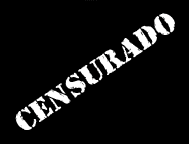http://www.its-arolsen.org/en/archives/index.html
En la direccion arriba indicada estan todos los archivos del Holocausto nazi. Aunque los nazis hicieron todo lo posible para destruir las pruebas , la burocracia alemana copiaba documentos a toda maquina - asi fue facil recomponer todo el archivo .
Ejemplo : Todo los gastos de transporte del servicio ferroviario aleman, que le pasaba la factura a Himmler - por el transporte de judios por todo el continente a los campos de exterminio. Aparecen los gastos y facturas de las companias de transporte mudanzas que vaciaban los muebles de los judios y enemigos de clase del partido nazi - todo detallado hasta el ultimo centimo - se puede ver todo lo que los nazis robaban por toda Europa. Quien fabrico las camaras de gas, las maquinas para las fosas comunes, los cables electricos, la construccion de toda la infraestructura del terror - todo con facturas - aparecen todas las companias - 25 km de archivos - 50 millones de carpetas - todo reconstruido en un proceso de 50 anos .. abierto al publico.
Cualquiera puede pedir informacion sobre su tio y donde acabo el piano, el piso o la mesa del comedor y quien lo recibio !
Todos los servicios del archivo estan bien detallados .
http://en.wikipedia.org/wiki/International_Tracing_Service
en Ingles aqui :
http://www.icrc.org/Web/Eng/siteeng0.nsf/htmlall/its-history-news-281107
Los archivos estan bajo la direccion de la Cruz Roja International - todo ciudadano tiene derecho a buscar a sus parientes ... en 27 km de archivos , 50 millones de carpetas.
Aquí la noticia original
Se abre el archivo al publico de las victimas del holocausto nazi. 27 km de archivos con 50 millones de carpetas ( la burocracia alemana )
28-11-2007 Press Release 07/125
International Tracing Service opens archives to public
Treaty ratified by all member States of International Commission
Berlin (ICRC) – After more than 60 years the archives of the International Tracing Service have become accessible to the public.Historical researchers and other interested people can now examine archives and documents from the Second World War at the Tracing Service in Bad Arolsen, Germany. Previously such access was granted only to the victims of Nazi persecution and their next of kin. The archives contain over 50 million documents regarding the persecution, exploitation and extermination of millions of civilians by the Nazis.
"The sheer dimensions of the collection and its unique nature both enable these documents to make plain the horrors inflicted systematically and on an enormous scale by the National Socialist regime from 1933 to 1945," says Reto Meister, director of the Tracing Service. "It will now be possible to carry out detailed research on, for example, the transport of prisoners, the camp populations, and the health of forced labourers."
The Service is answerable to the 11-member International Commission for the International Tracing Service and its work is based on the 1955 Bonn Agreements and the 2006 protocol amending those agreements which have now been ratified by all members. The Service is directed and administered by the International Committee of the Red Cross (ICRC) on behalf of the Commission.
"This is the conclusion of a long and difficult process," said Jakob Kellenberger, ICRC president. "The sensitive information stored at the International Tracing Service is now available to researchers and the broader public. This dark chapter in German history must never be forgotten."
The Nazis kept meticulous records of their crimes. After the war, the records in the concentration camps were brought to Bad Arolsen. For the past six decades they have been stored in archives, bearing information about the fate of individuals but also about shockingly cruel practices such as medical experiments carried out on the inmates. Now researchers will be able to study these records and hopefully gain new insight into the suffering of individual victims and the Holocaust generally.
For further information, please contact:
Florian Westphal, ICRC Geneva, tel +41 22 730 2282
Iris Möker, ITS, tel +49 172 211 78 31
or visit the website of the International Tracing Service: www.its-arolsen.org
http://www.its-arolsen.org/en/archives/index.html
Referencia: Gracias a Gustav por la información
viernes, 7 de diciembre de 2007
Suscribirse a:
Enviar comentarios (Atom)















No hay comentarios:
Publicar un comentario